
















Since August 2023, the Ministry of Blue Economy & Fisheries (MBEF) of Zanzibar and the Blue Alliance Marine Protected Areas (BA) launched their partnership in a long-term agreement for the collaborative management of the Pemba Channel Conservation Area’s (PECCA) Blue Corridor The principal objectives include contributing to the Blue Economy of the island, supporting the livelihoods and food security of an estimated 8,000 households, and enhancing climate change resilience by improving the protection of 18,000 hectares of spectacular coral reef ecosystems. President of Zanzibar and Chairman of the Revolutionary Council, Dr. Hussein Ali Mwinyi, emphasised that the path towards a Sustainable Blue Economy depends on collective efforts from all partners to ensure coastal and marine ecosystems are well maintained
This partnership aligns with the United Nations Sustainable Development Goals (UN SDGs) - No Poverty (1), Gender Equality (5), Decent Work and Economic Growth (8), Climate Action (13), Life Below Water (14), and Partnerships for the Goals (17) - addressing key global challenges through local action Performance will be assessed against best practice impact standards, monitored by the co-management team
Through a collaborative management structure, which is currently being built, the Ministry of Blue Economy & Fisheries and Blue Alliance work together in four fundamental fields of operation: Community development through employment, micro-enterprise, and empowerment; Marine wildlife monitoring and conservation through robust science; Revenue stream development through sustainable tourism, sustainable fisheries, and responsible aquaculture; and Compliance through supporting patrols, community engagement, and awareness campaigns.
This multi-faceted approach will not only bolster PECCA's financial sustainability but also stimulate local economies, create employment opportunities, enhance visitor experiences, and fortify the long-term management of the Conservation Area.
In this agreement, the Blue Alliance team together with MBEF, Shehias Fishing Committees, and other stakeholders have already implemented a number of activities as described in this report They have been centred as a team on fighting destructive illegal fishing and helping overfished stock recover, protecting endangered marine turtles, reducing bycatch of threatened species, and protecting coral reefs. The team has regularly monitored the COTS (Crown of Thorns Starfish) to prevent any outbreak.
On the scientific programme, we welcome the fact that the catch per unit effort (CPUE) data collection at four selected sites in the Shehia of Makangale has been initiated by BA and MBEF is in need of the whole process initiated to discuss the best working modalities for performance in strategic areas, not only on those 4 Shehias selected above, but also in the whole mandated 12 Shehias This will help to a better understanding of day-to-day status of the resources available through effective monitoring
Regarding the community’s participation in the inclusion process developed through our four pillars of intervention, it should be noted that the KASA center project implemented by our partner, the Kwanini Foundation, focuses on empowering local communities through educational awareness programmes, no-interest eco-loans, and technical assistance to foster personal development and income-generating, nature-positive enterprises Furthermore, plastic waste in Makangale is tackled through the KASA center and residents are being paid to make ecobricks using recycled plastic waste found in the fields, streets, and beaches of Makangale. The ecobricks will then be used as building materials to construct our KASA training center
During this period considered in the report, MBEF and Blue Alliance have also organized continuing training sessions on swimming, starting with two female rangers at Manta Resort as well as 15 female seaweed farmers in Vumawimbi. The exercise is ongoing for more participants. Awareness training on fisheries regulations of six Shehia Fisher Committees (SFC) in Tondooni, Msuka West and East, Gando, Fundo, and Makangale were also conducted during this reporting period
With these SFCs and the Pemba Channel Conservation Area (PECCA), Blue Alliance and MBEF have implemented joint patrols of about 600 hours to survey the illegal practices in the Conservation Area In December, the joint patrol was conducted with participation of the KMKM (Zanzibar Anti-Smuggling Unit) coastal guard for the first time and even received support from the District Commissioner herself This collaboration marks a significant milestone in the efforts to protect Pemba's precious marine ecosystem.
We highly welcome and value this spirit of collaboration that drives our partnership towards a common purpose We hope to see these joint initiatives develop and structured to guarantee a high level of efficiency and professionalism in the effective implementation of the Service Agreement Thank you
Dr. Hamza, Salim Moh’d Officer In-Charge
Ministry of Blue Economy and Fisheries, Pemba



Blue Alliance - Marine Protected Areas (previously Blue finance) is working with governments and local partners to build and manage self-sustaining Marine Protected Areas (MPAs) to regenerate threatened coral reef biodiversity and improve the lives of local communities. Blue Alliance builds innovative Blue Economy reef-positive businesses to alleviate poverty and generate long-term income for MPAs.
As of 2023, Blue Alliance and its partners manage 4 MPA networks: preserving 1,000,000 hectares of high-biodiverse coral reefs, protecting more than 40 endangered species and improving the livelihoods of more than 20,000 coastal community members in Zanzibar, Indonesia, Belize, and the Philippines.
Turneffe Atoll
Marine Reserve

 Belize
North Pemba
Pemba Channel Conservation Area
Philippines North Mindoro MPA
Indonesia Banggai Conservation Area
Belize
North Pemba
Pemba Channel Conservation Area
Philippines North Mindoro MPA
Indonesia Banggai Conservation Area


50% of Tanzania’s reefs are located around Pemba Island, and the Pemba Channel Conservation Area (PECCA) encompasses approximately 90,500 hectares of highly biodiverse coral reefs, mangroves, and seagrass beds The cool water upwellings from the deep Pemba Channel, which separates Pemba Island from mainland Tanzania, make Pemba Island's coral reefs a potential refuge against climate change. Pemba’s unique marine environment is home to more than 40 threatened marine species, including the critically endangered Napoleon fish, the Blue bumphead parrotfish, green and hawksbill sea turtles, the reef manta ray, the dugong, and the endangered Indian Ocean humpback dolphin The Pemba Channel is known for the highest cetacean abundance and diversity in the region. Additionally, Pemba’s marine ecosystems positively impact the lives of over 20,000 households in the coastal community
 Photo©JesperAnhede
Photo©JesperAnhede
Our efforts enhance the sustainable use of 26,000 hectares of marine biodiversity in one of the world's most biodiverse regions. We aim to uplift more than 8,000 households from poverty, ensuring food security and enhancing climate resilience.



 PECCA encompasses the following three interconnected marine ecosystems:
Mangroves Seagrass
Coral Reefs
PECCA encompasses the following three interconnected marine ecosystems:
Mangroves Seagrass
Coral Reefs
Our team works to enhance the sustainable use of 26,000 hectares of marine biodiversity in one of the world's most biodiverse regions, uplifting more than 8,000 households from poverty, ensuring food security, and boosting climate resilience.






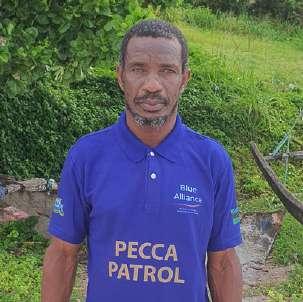 Suleiman Kombo Ali OPERATIONS MANAGER
Sharif Hamad Issa SCIENCE OFFICER
Ainess Shoo OFFICE ADMINISTRATOR
Suleiman Said Rashid AQUACULTURE OFFICER
Hassan Mohamed Rashid HEAD RANGER
Khamis Juma Khamis HEAD RANGER
Mohamed Abdulla Mohamed BLUE ALLIANCE PECCA SENIOR ADVISER
Suleiman Kombo Ali OPERATIONS MANAGER
Sharif Hamad Issa SCIENCE OFFICER
Ainess Shoo OFFICE ADMINISTRATOR
Suleiman Said Rashid AQUACULTURE OFFICER
Hassan Mohamed Rashid HEAD RANGER
Khamis Juma Khamis HEAD RANGER
Mohamed Abdulla Mohamed BLUE ALLIANCE PECCA SENIOR ADVISER
Our global executive team supports local MPA management organisations with a comprehensive mix of expertise in effective co-management and sustainable finance The collective experience of our global executive team includes:





30+ years MPA operational management
40+ years Coral reef and fisheries science
30+ years Reef-positive businesses and ecotourism
30+ years Creative marketing and digital solutions
20+ years Carbon certification projects






 Angelique Brathwaite DIRECTOR CONSERVATION & SCIENCE & CO-FOUNDER
Gary Lotter ECOTOURISM DIRECTOR
Daniel Sadd FISHERY BIOLOGIST
Olivia Grubenmann COMMUNICATIONS MANAGER
Elisabeth Winter DIRECTOR FINANCE & HUMAN RESOURCES
Arnaud Gotanegre CHIEF OPERATIONS OFFICER (COO)
Nicolas Pascal EXECUTIVE DIRECTOR & CO-FOUNDER
Angelique Brathwaite DIRECTOR CONSERVATION & SCIENCE & CO-FOUNDER
Gary Lotter ECOTOURISM DIRECTOR
Daniel Sadd FISHERY BIOLOGIST
Olivia Grubenmann COMMUNICATIONS MANAGER
Elisabeth Winter DIRECTOR FINANCE & HUMAN RESOURCES
Arnaud Gotanegre CHIEF OPERATIONS OFFICER (COO)
Nicolas Pascal EXECUTIVE DIRECTOR & CO-FOUNDER

As of August 2023, Blue Alliance PECCA is co-managing the northern part of the Pemba Channel Conservation Area (PECCA), covering 26,000 hectares of spectacular coral reef ecosystems, under a 5-year renewable co-management agreement with the Ministry of Blue Economy and Fisheries of the Revolutionary Government of Zanzibar.




In August 2023, the Ministry of Blue Economy and Fisheries (MBEF) of the Revolutionary Government of Zanzibar signed an agreement with our local entity, the non-profit Blue Alliance PECCA, for the delegated management of the Pemba Channel Conservation Area. This renewable agreement, with a duration of five years, outlines a clear distribution of roles and responsibilities for the day-to-day management of the conservation area. The MBEF aims to promote economic growth and social inclusion while improving the livelihoods of Zanzibaris and ensuring the preservation of environmental sustainability in the oceans and coastal areas. It is responsible for interventions in two key priority areas: empowering local people to benefit from the Blue Economy, and accelerating the structural transformation of Zanzibar's economy through bankable and sustainable investments in the Blue Economy.
This partnership enhances the protection of 26,000 hectares of spectacular coral reef ecosystems, improves the livelihoods and food security of an estimated 8,000 coastal community households (most of them below the poverty level), and increases climate change resilience. Blue Alliance PECCA is implementing a number of sustainable Blue Economy initiatives, with a focus on including local communities in the development of community-based aquaculture facilities, ecotourism programmes, and fishery improvement projects.

Blue Alliance PECCA's activities are approved by local authorities and guided by a Stakeholder Advisory Committee (SAC). Serving as a mechanism for participation in the planning, management, and monitoring of the MPA, the SAC comprises representatives from government agencies, experts from academia, and other organisations.






26,000 ha with enhanced biodiversity protection and control of destructive and unsustainable fishing activities
1,300 ha coral reef ecosystem aided in recovery
40 threatened species beginning to increase in number
40+ coastal community members with enhanced livelihoods
600+ Hours of surveillance patrols conducted
4+ reef-positive businesses in development in the Blue Economy




We are combating destructive and unsustainable fishing activities through (i) enhanced 24/7/365 surveillance programmes, conducted in collaboration with local authorities and fishing committees; (ii) long-term community engagement programmes; and (iii) providing alternative livelihoods for coastal fishermen through our reef-positive businesses, which reduces their fishing efforts.
We enhance the control of fishing activities in PECCA to ensure sustainability Fishing activities are regulated in replenishment zones, during temporal closures, and across all fishing grounds through joint patrols conducted with authorities and local fishing committees Additionally, we are addressing the decline of specific species through the development of aquaculture hatcheries
We are dedicated to safeguarding all marine fauna, but hawksbill sea turtles (Critically Endangered) and green turtles (Vulnerable) are among our priorities in Pemba By preserving critical habitats such as nesting sites, reducing poaching, and raising awareness, we can help to ensure their survival.
We contribute to reducing the bycatch of threatened species by controlling destructive and illegal fishing practices, recommending more sustainable fishing gear and methods, and educating local fishing communities about the release of bycatch Our efforts are aiding the recovery of more than 40 threatened species, including critically endangered Napoleon fish, reef manta rays, dugongs, and humpback dolphins
Photo©ThomasVignaud Photo©KwaniniFoundationCrown-of-Thorns Starfish (CoTS) are predators that can reach infestation levels and rapidly deplete coral cover The last major CoTS event occurred in 2008 However, we conduct monthly monitoring to ensure early warning and the opportunity to proactively address potential outbreaks
Coral reef care is essential, and our reefs are the central focus around which all our efforts revolve We combat the use of destructive fishing techniques and promote coral reef protection awareness through marine conservation education for learners, scholars, community members, and visitors
Mangrove forests act as natural carbon sinks, contributing to climate change mitigation. Our Blue Economy initiatives focus on preserving and restoring mangrove forests, encouraging their protection through businesses and incentives reliant on healthy mangrove ecosystems. Additionally, we introduce and support educational campaigns.
We create jobs by transitioning fishers to staff positions within the MPAs or reef-positive businesses, such as ecotourism, communitybased aquaculture, and mangrove restoration. We enhance the livelihoods of coastal fishing households by supporting small and medium enterprises in the Blue Economy and offering training programmes, with a particular emphasis on empowering women and girls.
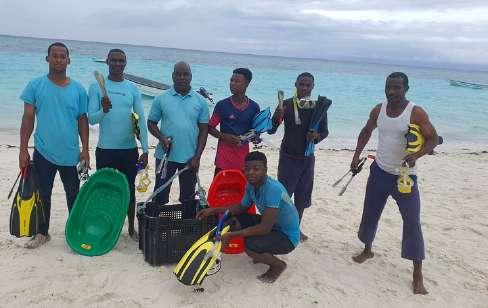


 Photo©AlexanderMustard/OceanImageBank
Photo©JesperAnhede
Photo©AlexanderMustard/OceanImageBank
Photo©JesperAnhede

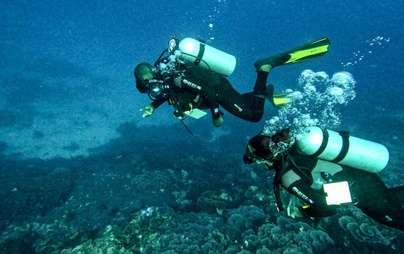

Poverty directly contributes to unsustainable fishing, pollution, the clearing of mangroves, and various forms of environmental degradation. In addition to creating jobs, we empower communities through training and by providing micro-grants to launch businesses This encompasses English and computer classes, swimming lessons, dive certifications, and improvements in aquaculture and farming.
Through our ecotourism division, BlueWild Ecoventures, we train local dive industry stakeholders to adopt the internationally recognised "Green Fins" code of conduct for responsible diving and snorkeling Additionally, we offer experiences tailored for mindful travelers and educational programmes
By improving the health of natural coastal and marine ecosystems, our efforts safeguard coastal communities from the impacts of extreme weather events and contribute to climate change mitigation. Reducing local will provide additional resilience mate change for coral reefs

We are collaborating with es, innovative companies, and our grams to support mitigation ms and implement responsible

Our activities are founded on a cohesive four-pillar approach that provides a solid foundation for MPA development. Our innovative approach to marine conservation combines effective co-management of the MPAs, reef-positive businesses, and conservation practices grounded in robust science. Our four main fields of operation include:

Wildlife monitoring and conservation through robust science.

The creation of reef-positive businesses in and around MPAs such as ecotourism, blue carbon projects, and community-based aquaculture
Community development through employment, reefpositive businesses, and empowerment

Compliance and enforcement through patrolling, community engagement, and awareness campaigns
 Photo©SofiSugiharto
Photo©SofiSugiharto
From the numerous activities and advancements since August 2023, we are pleased to present a selection of milestones from each of our four main fields of operation.





On August 21st, 2023, our local sister entity, Blue Alliance Zanzibar, and the Ministry of Blue Economy and Fisheries of the Revolutionary Government of Zanzibar signed a long-term collaborative management agreement for the northern part of the Pemba Channel Conservation Area (PECCA). This agreement aims to protect 26,000 hectares of marine ecosystems from destructive and unsustainable fishing activities and contribute to the island's Blue Economy. This marks a significant milestone in our shared mission to manage MPAs effectively and sustainably
Science & Conservation Community Development Compliance Reef-positive businessesWe monitor fish and shark populations, coral reefs, seagrass beds, and mangrove forests to determine ecosystem health and changes over time and track the impact of our management interventions. We carry out direct conservation programmes in and around our MPAs. With the support of funders, we are exploring innovative monitoring methods. Our key scientific programmes include:
Sea turtle nesting monitoring, establishment of hatcheries, and training for monitors
Crown of Thorns (CoTS) monitoring and collection programme
Reduction of bycatch by recommending more sustainable fishing gear
Biophysical assessments of reef fish, as well as coral, mangrove, and seagrass ecosystems
Underwater surveys of commercial fish species
Fish catch monitoring programme/Fish landing surveys
Experimental CPUE (catch per unit effort) monitoring programme
Baited Remote Underwater Video Systems (BRUVS), planned for mid-2024
FISH-I© technology for AI-powered assessments of fish identification and determination of biomass, planned for mid-2024
Use of environmental eDNA, planned for mid-2024
We conduct fish catch monitoring programmes via fish landing surveys and regular interviews with fishers. This enhances our understanding of local fisheries and their impact on marine ecosystems, providing indicators of fishing efforts and the adoption of new fishing gear. Fish landings are crucial for assessing the bycatch of threatened species In Pemba, we initiated the catch per unit effort (CPUE) data collection at four selected sites in Makangale Shehia.
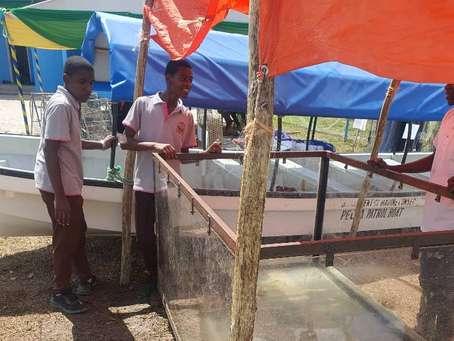

BA PECCA participated in the Food Day Exhibition as part of World Food Day, aiming to raise awareness about global food security. We shared information on the Blue Economy in Pemba, encompassing marine conservation, marine safety, and the sustainable use of marine resources BA displayed illegal fishing gear, including fish traps, small mesh nets, spear guns, and monofilament nets, to highlight the importance of sustainable fishing and marine conservation

In August 2023, we initiated monitoring of Crown of Thorns Starfish (CoTS) on the house reef of the Manta Resort in Pemba, with plans to extend this to the entire Blue Corridor. Before this, the local Blue Alliance team underwent comprehensive training in CoTS monitoring, which we plan to offer to members of each Shehia in the future. Our goal is to establish a dedicated team, comprising members from Blue Alliance PECCA and the SFC, to carry out monthly monitoring efforts. Starting in Makangale Shehia, we aim to extend our efforts to other Shehias in the future.
The health of coral reefs is vital for numerous marine species and supports local communities reliant on these ecosystems for their livelihoods Crown of Thorns Starfish (CoTS) are natural predators of hard corals, and their overpopulation can significantly harm the reefs. By closely monitoring their numbers and locations, we are equipped to take timely action to protect our valuable reefs
 Photo© WarrenBaverstock/OceanImageBank
Photo© WarrenBaverstock/OceanImageBank
We collaborate closely with the government, partners, and local communities to identify and develop Blue Economy revenue models that can sustainably enhance the resilience of marine ecosystems and the livelihoods of coastal communities.
Our key community development programmes include:
Creating new job and business opportunities in community-based aquaculture, ecotourism, and sustainable fishing for communities
Enhancing existing aquaculture activities to make them more sustainable and profitable for local communities
Incubating and accelerating micro-businesses within coastal communities
Job opportunities for local community rangers
Community empowerment and education to enhance entrepreneurship capabilities
Swimming and SCUBA lessons for the local community
Community empowerment and education with a focus on women

We are tackling plastic waste in Makangale through the Kasa Centre. Residents are paid to create Ecobricks from plastic waste found in the fields, streets, and beaches of Makangale These Ecobricks will be used to construct our Kasa training centre, transforming its construction into a workshop that demonstrates how residents can use recycled, free materials for construction By turning trash into something useful, we're addressing plastic waste and empowering the local community.
The Kasa Center, implemented by our partner, the Kwanini Foundation, focuses on empowering local communities through educational programs, interest-free ecoloans, and technical assistance This support aims to foster personal development and income-generating, nature-positive enterprises. With a vision of harmonising economic entrepreneurship, prosperity, and nature protection, Kasa helps Pembans become more resilient to climate, economic, and social challenges.

In collaboration with our local partner:


Blue Alliance organised swimming training sessions for two female rangers at Manta Resort and several female seaweed farmers in Vumawimbi. As part of our aquaculture projects, our aim was to equip these women with the necessary skills for deep seaweed farming.
By empowering the women of Vumawimbi with swimming skills and knowledge about deep seaweed farming, we are promoting gender equality and creating opportunities for economic growth and environmental sustainability in and around Pemba.








With the support of Manta Resort, Blue Alliance PECCA organised scuba diving training for two of our rangers Our rangers participate in activities such as patrolling, monitoring and collecting Crown-of-Thorns starfish, and assisting with fish landing documentation These scuba diving trainings will not only enhance the skills and knowledge of our team members but also contribute to our mission of protecting Pemba's marine ecosystems By enabling them to explore the underwater world and gain a deeper understanding of marine ecosystems, they can make informed decisions and take appropriate actions.
Photo©KwaniniFoundationOur role as an official co-management entity is to enhance compliance with fishery and environmental laws and regulations. We achieve this through surveillance and long-term community engagement programmes. One of our major management interventions is assisting in the enforcement against illegal and destructive fishing methods. This is done through joint patrols involving local police and military representatives, enforcers from Shehia fishing committees, and our own rangers.
Our key compliance programmes include:
Joint 24/7/365 surveillance patrols with local authorities
Demarcation of PECCA and special zones through highly visible marker buoys on MPA boundaries (planned for Q1 2024)
Comprehensive, ongoing training in anti-poaching techniques and apprehension for MPA and fishery law violations
Digital solutions to advance monitoring efforts with the EarthRanger surveillance tool
Logistical and equipment support
Blue Alliance PECCA conducted training for six Shehia Fisher Committees (SFC) in Tondooni, Msuka West and East, Gando, Fundo, and Makangale The focus was on building awareness and capacity regarding existing fisheries regulations. Participants learned about the importance of adhering to fisheries regulations and the potential consequences of non-compliance They gained insights into sustainable fishing practices and their role in ensuring a thriving marine ecosystem.


PECCA rangers regularly engage with fishers to raise awareness. We collaborate with officers from the Shehia Fisher Committee (SFC) and the Pemba Channel Conservation Area (PECCA) to combat illegal practices within our Marine Protected Area These joint patrols are crucial for preserving the marine ecosystem and protecting the biodiversity thriving within PECCA
Blue Alliance PECCA collaborated with the Shehia Fisher Committee (SFC) and the Pemba Channel Conservation Area (PECCA) to address illegal practices within the Marine Protected Area. In December, the joint patrol was enhanced by including the KMKM (Zanzibar navy) coastal guard for the first time, with additional support from the District Commissioner. This collaboration represents a significant milestone in our efforts to protect Pemba's valuable marine ecosystem.
The Blue Alliance PECCA team and the Revolutionary Government of Zanzibar are committed to ensuring that sustainable fishing, livelihoods, and marine conservation are maintained in line with the Blue Economy Policy and national strategies of Zanzibar
– Mohamed AbdullaMohamed, Institutional Advisor Blue Alliance PECCA

Blue Alliance PECCA aims to become self-sustaining through the development of a pipeline of reef-positive businesses in and around the Blue Economy. These sustainable enterprises will enhance the livelihoods of coastal communities, mitigate threats to marine biodiversity, and generate tangible revenue streams for reinvestment directly back into Blue Alliance.
Key sustainable revenue generation initiatives include:
Establishing a sea cucumber hatchery and grow-out community-based aquaculture
Establishing a mangrove crab hatchery and grow-out extensive aquaculture
The Underwater Room at the Manta Resort
Wildlife ecotourism
Fishery supply chain improvement
Blue carbon credits sold through restoration and conservation of mangroves


In July 2023, our ecotourism branch, BlueWild EcoVentures, unveiled an innovative reef-positive initiative in Zanzibar, launching the Pemba Coral Reef Safari This initiative combines a traditional terrestrial safari with an immersive underwater experience and allocates 30% of its launch price to marine protection and local development The Pemba Coral Reef Safari was awarded 'Regenerative Travel Experience' of the year and was featured in CN Traveller's 2023 'Bright Ideas in Travel'.





Overfishing is significantly impacting our marine ecosystems. Fortunately, innovative initiatives are emerging with new sustainable business models. We are pleased to introduce the launch of Samaki Bluu, a reef-positive business dedicated to improving fishery sustainability and the livelihoods of local fishers. Samaki Bluu prioritises seafood traceability, enabling customers to track the journey of their seafood from its origin to their plate.
The organisation collaborates closely with small-scale fishing communities of Pemba Island to promote sustainable fishing practices, offer training on eco-friendly techniques, and enhance the traceability of the fisheries value chain. The result? High-quality seafood products from Pemba Island, harvested using traditional practices that adhere to both ecological sustainability and social fairness standards. Samaki Bluu's fishing fleet comprises skilled fishermen from the local communities of Pemba, leveraging their expertise in traditional fishing methods and expert handling and filleting techniques. Additionally, the organisation has established a robust cold chain system, reducing waste and overfishing while improving fish quality and value.
Photos©SamakiBluuBlue Alliance PECCA will collaborate with Full Circle Company Ltd to establish AQUAHUB Seacucumber Ltd. Full Circle Company Ltd is a Zanzibari aquaculture company that has been actively involved in developing the sea cucumber aquaculture industry in Zanzibar for the past five years.
AQUAHUB aims to foster a community-based sea cucumber mariculture industry in PECCA by leveraging its sector expertise and investment resources to establish largescale, highly profitable, and professionally managed sea cucumber farms across multiple communities in the PECCA area. AQUAHUB will work closely with various stakeholders, including local and national governance structures, producer groups, and community development boards, to ensure that the farming model and activities are well understood and agreed upon by all involved parties. The sea cucumber farming model developed by AQUAHUB prioritises the involvement of community-based producer groups, placing them at the forefront of the emerging sea cucumber farming industry. This approach provides coastal communities with access to a lucrative industry within the Blue Economy, offering opportunities for sustainable income generation and dividends. Additionally, AQUAHUB aims to produce a marketable product that can generate export revenue for the nation.




Creation of >100 full time jobs for PECCA residents
Creation of > 900 part time jobs for PECCA residents


Creation of 10 community fund for PECCA residents
Technical upskilling of PECCA residents in sustainable aquaculture practices



Recovery of stocks of sea cucumber in PECCA
Regeneration of >100 hectares of seagrass ecosystems
Significant export revenues
Financial support for the MPA activities of Blue Alliance PECCA


As part of the aquaculture projects, the team at Blue Alliance PECCA conducted approximately 40 hours of surveys around Pemba to evaluate potential sites for the development of a mangrove crab hatchery and grow-out culture. Some sites were identified as dormant and have the potential for development.



Our work is focused on building significant long-term impacts here and now. Whether it is what we do today or build for the future, to us, it is always impact first. Our MPA work is aligned with the United Nations Development Programme’s Sustainable Development Goals (SDGs). We are actively enabling ocean-positive environmental and societal impacts through:

Regeneration of coral reef ecosystems and endangered species – we focus on reducing harmful fishing practices through a combination of enhanced law enforcement, long-term community engagement programmes and developing alternative ways of earning a living.
Increasing climate change resilience and contributing to climate risk mitigation through improving the health of natural marine and coastal ecosystems, and protection for coastal communities from climate change-derived high-energy events.
Reduction of poverty – we help coastal communities to sustainable increase fishery productivity and to develop alternative sources of protein.
Growing sustainable tourism and small-scale aquaculture to create jobs.
Work towards gender equality via female-focused job creation and training.
Strengthen the means of implementation and revitalize the global partnership for sustainable development.
There are five identified and agreed upon impact metrics as proxies for the impacts on nature and people that are being monitored in the Blue Alliance Pemba Channel Conservation Area.


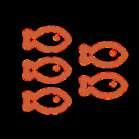


Regeneration of coral reef ecosystems
Regeneration of mangrove ecosystems
Recovery of species from overfishing and illegal destructive fishing
Improved catch by coastal fishers
Job creation in the MPAs and reef-positive enterprises
With the support of our partners, we are implementing new impact measurement tools to enhance the methodology for assessing the health of marine habitats around key areas such as sustainable fisheries, water quality, reef health, and tourism carrying capacity.
We assist the Government in fulfilling its sustainability commitments Blue Alliance serves as the local entity responsible for executing all operational functions, ensuring that management activities are in line with government policy
By entrusting Blue Alliance and our local partners with the day-to-day management of MPAs, the Government can concentrate on core functions such as regulation and enforcement. Additionally, they play an oversight role, which involves approving the annual objectives and plans for each MPA, informed by insights from an advisory committee comprising stakeholders. We closely collaborate with local authorities as part of our established co-management approach


We collaborate closely with our partners and provide regular progress reports. We are thankful to our strategic, funding, and Conservation & Blue Economy partners who enable and support our long-term impacts.

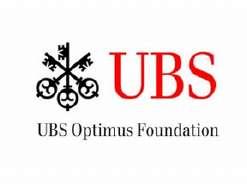











Organisation Name
Blue Alliance PECCA
Registered Office and Operational Address
Blue finance
12 Av. Draio de la Mar
13620 Carry-le Rouet, France
Blue Alliance PECCA
Panga Watoro, Plot 4 PO Box 22 Wete, Pemba, Zanzibar


